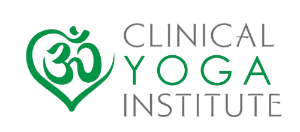Integrative medicine yoga programs have been gaining recognition as effective tools in addiction recovery and relapse prevention. Yoga, a practice that combines physical postures, breathwork, and meditation, focuses on improving the mind-body connection and promoting overall well-being. While traditional methods like therapy and medication are still important components of addiction treatment, the incorporation of yoga into recovery programs has shown significant benefits in helping individuals overcome substance abuse.
One of the key benefits of integrating yoga into addiction recovery programs is its ability to address the underlying issues that contribute to addiction. Many people turn to substances as a way to cope with stress, anxiety, or trauma. Yoga helps individuals develop healthier coping mechanisms by teaching them how to regulate their emotions and manage stress in a healthier way. Through mindfulness practices like meditation and breathwork, individuals can cultivate self-awareness and self-compassion, which are crucial for breaking the cycle of addiction.
Additionally, yoga can help individuals in addiction recovery develop a more positive relationship with their bodies. Substance abuse can take a toll on physical health, leading to issues like muscle tension, poor posture, and chronic pain. Yoga promotes movement and flexibility, which can help individuals rebuild strength and resilience in their bodies. By reconnecting with their physical selves in a positive way, individuals in recovery can experience increased feelings of self-esteem and self-worth.
Furthermore, yoga can also help individuals in addiction recovery improve their mental health. Studies have shown that yoga can reduce symptoms of depression and anxiety, which are common co-occurring disorders with substance abuse. The practice of yoga can help individuals regulate their emotions, improve focus and concentration, and enhance their overall sense of well-being. By incorporating yoga into their recovery journey, individuals can experience greater emotional stability and mental clarity, which are essential for maintaining sobriety.
In addition to its benefits in addiction recovery, yoga can also play a crucial role in relapse prevention. The skills and tools that individuals learn through yoga practice can help them navigate the challenges and triggers that may arise during their recovery journey. By developing mindfulness and self-awareness, individuals in recovery can become more attuned to their thoughts, feelings, and behaviors, allowing them to make healthier choices and avoid relapse.
Overall, Integrative medicine yoga programs offer a holistic approach to addiction recovery and relapse prevention by addressing the physical, emotional, and mental aspects of substance abuse. By incorporating yoga into their treatment plans, individuals can experience greater self-awareness, improved mental health, and enhanced well-being, ultimately supporting their long-term sobriety.
For more information visit:
Clinical Yoga Institute | Online Accredited Yoga Teacher Training
https://www.clinicalyogainstitute.com/
United States
Embark on your journey to become a certified clinical yoga practitioner with our evidence-based online yoga teacher training program. Tailored for mental healthcare professionals, our flexible learning schedule fosters a supportive community of like-minded peers. Earn 30.5 NASW CEUs as you progress towards becoming a skilled professional in clinical yoga.

